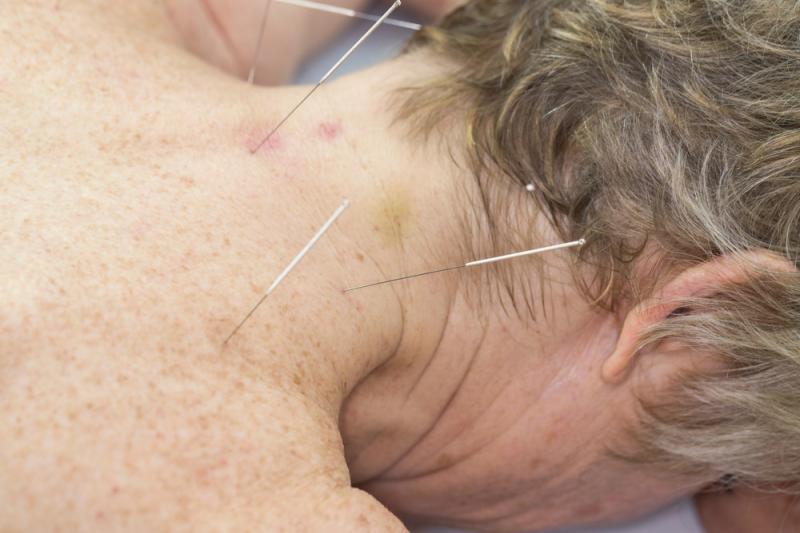Acupuncture For Seniors: 7 Things To Know

As people age, they sometimes forget about things, even what their bodies can do. And often subject their body to rigorous activities and exercises, making them feel sore and pains.
As you age, your body begins to feel different. Your bones may not be as dense and strong, and your muscles may get tight. This may cause pain in your joints and soreness in your muscles. Moreover, your sleep pattern might change, causing you to sleep lightly or encounter difficulty sleeping or staying asleep. This could also impact their mood and emotions.
Things are not how they used to be, but you don't have to endure and ride it like it's meant to be that way. You can do something about it so you can feel better. Many older people today prefer the natural treatment of acupuncture.
Since the early 90s, interest in complementary and alternative medicine like acupuncture has risen in the United States. According to Acupuncture Massage College, this interest made 14 million Americans try acupuncture, an increase from the initial research of 8.19 million.
What Is Acupuncture?
Acupuncture is an ancient traditional Chinese medicine that uses tiny sterile disposable needles to prod certain areas of the body and stimulate the energy pathways. This is used to achieve the right balance and relieve the symptoms of illnesses. Acupuncture can help alleviate many aches and pains, including migraine, arthritis, and many others. This next site provides a more detailed list of ailments acupuncture may help in a senior patient.
How Does It Work?
According to traditional Chinese medicine, diseases result from an imbalance in the body's Qi or chi. Qi is achieved when yin and yang complementary extremes are harmoniously balanced. The philosophy behind acupuncture believes that Qi flows through the body through meridians or pathways, and the human body has 361. Inserting the appropriate combinations of needles into these points will allow the energy flow to resume balance.

How Can Acupuncture Help Seniors?
As previously mentioned, acupuncture can help relieve various ailments and symptoms of diseases, especially in seniors. Some of these are:
- Neurological conditions, including migraines and headaches
- Parkinson's disease
- Musculoskeletal problems such as sciatica, muscle weakness, and degenerative joint disease
- Digestive issues like gastritis and irritable bowel syndrome
- Respiratory ailments like allergic rhinitis and bronchitis
- Sleep issues
- Emotional issues like anxiety and depression
If you're a senior and would like to try out acupuncture, here are some of the things you need to know:
- You May Combine Acupuncture With Other Treatments
The flexibility of acupuncture will not interfere with your medication or ongoing treatment; many patients use it alongside other treatments. Acupuncture has been used to reduce the painful effects of angina for patients with coronary artery disease. Angina is a patient's chest pain when there’s reduced blood flow to the heart muscles.
Another example is patients undergoing medication for depression. They use acupuncture alongside it and talk therapy and have seen improvement, especially for patients with post-stroke depression.
- The Needles Will Have To Stay In Place For At Least An Hour
A session of acupuncture takes more than an hour, including preparation. If you wish to have one session for the day, you must allot ample time for it because you can't rush it. You need to lie perfectly still with the needles in place for about 30-60 minutes.
- It Should Not Replace Doctor-Recommended Treatments
Acupuncture is meant to supplement your treatments and not replace them. And it's still best to consult your doctor if you combine both treatments to get the best advice.
- You Need To Go To A Licensed Practitioner To Ensure Your Safety
It's common to hear stories of botched procedures or treatments because fake practitioners pretend to be experts to acquire vast sums of money. Looking for a practitioner's license would be best to avoid jeopardizing your health. It's supposed to be displayed in the clinic for everyone to see for transparency.
- A Chronic Illness May Improve After A Dozen Sessions
Acupuncture will not magically heal your ailments in one or two sessions. You would need about a dozen sessions spread out over a period, especially if you have a chronic illness, just like in a study conducted for patients with hypertension in Taiwan. Over a period of 12 weeks, a twice-a-week 30-minute session of acupuncture showed improvement in the blood pressure, blood stasis, and depression of patients. That is, without any other drugs, altering of diet, or physical activity involved in the study.
You have to be patient with this alternative treatment. Remember to trust the process and stay positive because a positive mindset can help you channel your Qi more effectively.
- There Are Very Little-Known Side Effects
Aside from the dull pain of the needle inserted, acupuncture's side effects are mild and short-lived. This includes minor bruising on the site, drowsiness, and bleeding. After a while, these side effects will disappear, and you'll start to feel better.
- Some Health Insurance Includes Acupuncture In Their Coverage
It's very pleasing to know that some health insurances cover acupuncture. You have to check with your health insurance if yours are included and what is the limitation of the coverage. Most health insurance covers only chronic low back pain, which would still significantly help.
Conclusion
Living with chronic pain in your old age can be depressing. Instead of taking synthetic pain medicines that can potentially be addictive, a natural treatment like acupuncture will be better. So many people have improved their well-being and lived a more robust life in their senior years by balancing their Qi.
More to Read:
Previous Posts:











